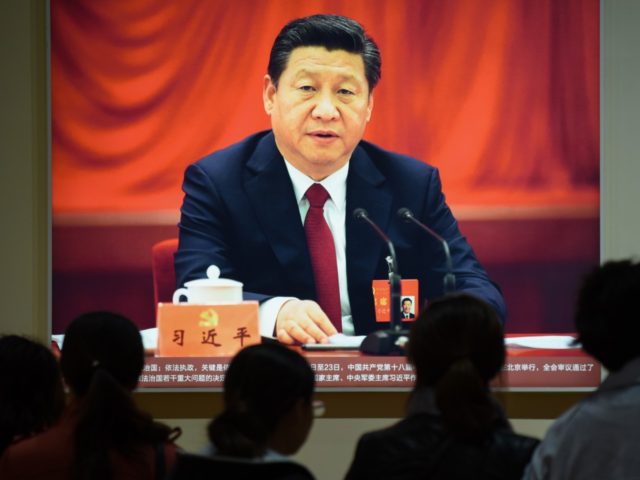A look at the Chinese Communist Party’s annual conclave by Nikkei Asian Review found the Party and Chinese businessmen at odds over economic policy, which several sources described as confused and subject to political squabbles among the Communist elite.
Some of the participants were alarmed by the yuan falling to an 11-year low while the conclave was in progress, violating long-standing promises to keep the currency at a higher level and avoid giving U.S. President Donald Trump ammunition to label China a “currency manipulator,” as he promptly proceeded to do.
One source with Chinese policy credentials told Nikkei Asian Review the real cause of global market chaos is not U.S. trade policy, but “the tug of war in Chinese politics that has continued for the past year and a half.”
Another source described a sense of unease that the Chinese Communist Party (CCP) is almost a year behind schedule to meet and formulate its next five-year economic policy. NAR described the lack of a long-term economic strategy as “astonishing.”
There has been some grumbling about Communist Party chief Xi Jinping prioritizing his ascension to “president for life” status, consolidating his grip on power, purging opponents, and building a “personality cult” instead of developing a coherent economic plan.
One theory about the delay in convening the session needed to formulate a new five-year plan is that Xi and his allies would face too much criticism from other Communist Party elites if it were held right now, possibly culminating in maneuvers that would have transferred some power from Xi to his number-two man and rival for CCP leadership, Premier Li Keqiang.
There is reportedly also some apprehension about chiseling any new Chinese economic policy in stone until the intentions of the United States and its political situation become clearer, which makes it sound like feet might be dragged until the 2020 U.S. presidential election comes into clearer focus.
Nikkei cautiously ventured there was a chance Xi Jinping might not be the Chinese dictator Trump or his successor faces in 2020 if dissension in the CCP grows and China’s economy does not get back on the right track. If there really is a chance of Xi losing his office, or at least some of his grip on power, it would invert the common opinion among U.S. commentators that China has nothing to lose by sitting tight in the trade war until it knows who the next U.S. president will be.
If the White House agrees with that analysis, it would help to explain why Trump has lately been praising Xi in fulsome terms that attracted considerable domestic criticism. The situation in Hong Kong has become a massive headache for Xi, described as “dazed and confused” by Christian Whiton of the Center for the National Interest in a Wednesday op-ed for Fox News.
Whiton looked past a bit of bad economic news for the U.S. to argue that things are still considerably more tense in Beijing, saying:
A fair assessment of the U.S.-China trade war shows Washington winning the dispute, although not everyone agrees. In his weekly New York Times column titled “China Tries to Teach Trump Economics,” progressive economist Paul Krugman argued that the president, “…vastly overrates his ability to inflict damage on China while underrating the damage China can do in return.”
In fact, Trump has proven that the opposite is true in imposing tariffs—for a simple reason. Last year, America imported $540 billion in goods from China and exported only $120 billion worth. As the far bigger customer in this relationship, the United States has the power. Even if Beijing stopped all $120 billion in U.S. imports, that amounts to only about half of one percent of U.S. GDP. The impact of tariffs on U.S. consumers has also been negligible. As the former CEO of Toys R Us recently explained, tariffs are “a fraction of a percent…on the average annual consumer basket.”
Oddly Xi has conducted himself as though a trade deal would be a favor to Washington. In the lead-up to the G20 summit in Osaka in June, Xi was noncommittal as to whether he would deign to meet with Trump. When he did, his government quickly reneged on promises he made to buy more U.S. food.
Clearly Xi wants to stall past next year’s presidential election, hoping to outlast Trump. This itself is disingenuous for a country that is mythologized for long-term strategy and deep analysis of its adversaries: economic and historical factors favor Trump for reelection, and, regardless, the story of the decade is Washington’s bipartisan sea change in sentiment toward China.
Trump may have calculated the Chinese leader is at least somewhat interested in hearing the White House scenario for a reasonably happy ending to both the Hong Kong crisis and the trade war. Casual dismissals of this strategy as a waste of Trump’s time are premised on Xi facing no serious internal political threat. The latest signals emanating from Beijing do not paint a picture of serene confidence.

COMMENTS
Please let us know if you're having issues with commenting.